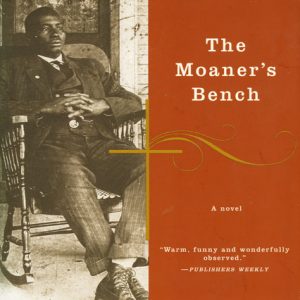calsfoundation@cals.org
Mars Andrew Hill III (1922–2016)
At the age of seventy-five, retired engineer Mars Andrew Hill III published a well-received coming-of-age novel, The Moaner’s Bench (1998). The novel draws heavily on Hill’s own childhood as an African American growing up during the 1920s and 1930s in rural Arkansas.
Mars Hill was born into a prosperous merchant-class family in Pine Bluff (Jefferson County). His father owned a grocery store and forest land. When his father died of complications from diabetes, the eleven-year-old Hill was placed in the care of his wealthy uncle. At the age of fourteen, Hill moved to Chicago, Illinois, to live with his maternal aunt.
After serving in the U.S. Army during World War II, he completed a degree in architectural engineering at the University of Illinois, Urbana-Champaign. He married in 1954, and he and his wife, Alvania, moved to Seattle, Washington, then later to Albany, New York. Although engineering was his vocation, Hill’s avocation was writing, particularly drama. Hill established his own theater company, the Black Experience Ensemble, in 1969 and has written and produced numerous plays drawing on his Southern roots. In 1974, he completed an MA in Africana Studies at State University of New York at Albany. Hill retired from engineering in 1983 and continued writing. In 1987, he participated in William Kennedy’s New York State Writers’ Workshop at Skidmore College under the direction of Russell Banks, where Hill began writing The Moaner’s Bench. He continued to work on the manuscript while earning a DA in Humanistic Studies at State University of New York at Albany in 1995.
The Moaner’s Bench, published in 1998, is a fictionalized memoir of Hill’s boyhood in the segregated South. The novel is set in “Pine Ridge,” which is the Pine Bluff of Hill’s childhood, and his protagonist’s experiences are drawn from Hill’s memories of his family and home. The central metaphor of the novel, the moaner’s bench, places repentance and redemption at the heart of narrator Sun Hughes’s coming-of-age story. The novel opens when Sun Hughes is thirteen. Because of his father’s death, Sun has been sent to live with his Uncle Pet, a Baptist deacon. His experiences on the moaner’s bench, where sinners confess and seek redemption, initiates Sun’s recollections from his earliest childhood up to the death of his father and the present moment. Hill suggested that the metaphor of the moaner’s bench extends beyond Sun’s search for redemption and applies to the nation’s need for repentance of its sins regarding the racial injustice that has its roots in slavery.
The Moaner’s Bench was well reviewed on both the national and local level. Positive reviews appeared in such national publications as Publishers Weekly, while local interest was strong in Hill’s native and adopted states. The Arkansas Democrat-Gazette included an interview with its review, as did the Pine Bluff Commercial. Favorable reviews also appeared in New York’s Sunday Gazette, the Sojourner-Herald, and Albany’s Metroland. The work was also nominated for a Pulitzer Prize. In 2013, the New York Senate designated Hill for special recognition by the African American Cultural Center of the Capital Region.
The story of Sun Hughes was picked up in a second novel, with the first chapter published in the April 2000 issue of Arkansas Review: A Journal of Delta Studies.
Hill died in Albany on March 17, 2016, and is interred at Graceland Cemetery.
For additional information:
Collins, Janelle. “‘Where the Redemptive Process Begins’: Mars Hill and The Moaner’s Bench.” Arkansas Review: A Journal of Delta Studies 30 (December 1999): 212–225.
Grondahl, Paul. “Mars Hill, Engineer, Novelist, Black Activist, Dies at 93.” Times Union, March 18, 2016. Online at http://www.timesunion.com/local/article/Mars-Hill-engineer-novelist-black-activist-6923197.php (accessed December 28, 2023).
Janelle Collins
Arkansas State University
 Arts, Culture, and Entertainment
Arts, Culture, and Entertainment Divergent Prosperity and the Arc of Reform, 1968–2022
Divergent Prosperity and the Arc of Reform, 1968–2022 Literature and Authors
Literature and Authors The Moaner's Bench by Mars Hill
The Moaner's Bench by Mars Hill 



Comments
No comments on this entry yet.